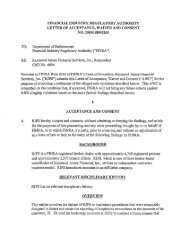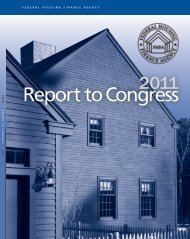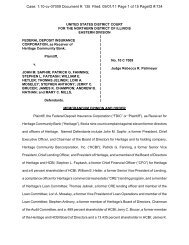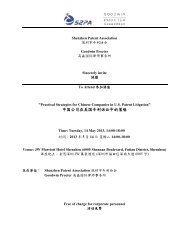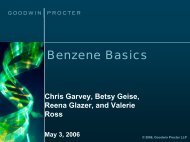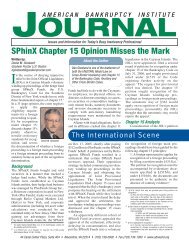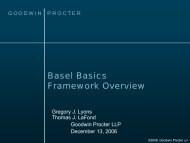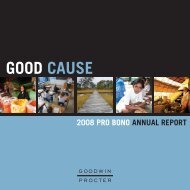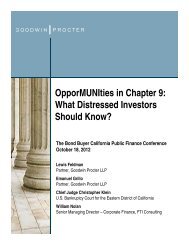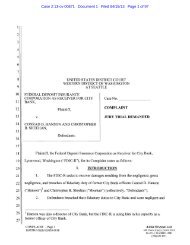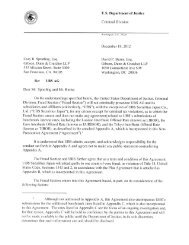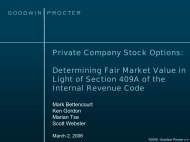Krueger v. Ameriprise Financial, Inc. - Blog
Krueger v. Ameriprise Financial, Inc. - Blog
Krueger v. Ameriprise Financial, Inc. - Blog
You also want an ePaper? Increase the reach of your titles
YUMPU automatically turns print PDFs into web optimized ePapers that Google loves.
CASE 0:11-cv-02781-SRN-JSM Document 67 Filed 11/20/12 Page 14 of 44<br />
Evaluation of the sufficiency of a complaint upon a motion to dismiss is “a<br />
context-specific task that requires the reviewing court to draw on its judicial experience<br />
and common sense.” Id. (quoting Iqbal, 556 U.S. at 679). A court may consider the<br />
complaint, matters of public record, orders, materials embraced by the complaint, and<br />
exhibits attached to the complaint in deciding a motion to dismiss under Rule 12(b)(6).<br />
Porous MediaCorp. v. Pall Corp., 186 F.3d 1077, 1079 (8th Cir. 1999).<br />
B. ERISA<br />
The federal Employee Retirement <strong>Inc</strong>ome Security Act of 1974, 88 Stat. 829, as<br />
amended, 29 U.S.C. § 1001 et seq. (“ERISA”), regulates plans providing employees with<br />
fringe benefits. Shaw v. Delta Air Lines, <strong>Inc</strong>., 463 U.S. 85, 90 (1983). “ERISA is a<br />
comprehensive statute designed to promote the interests of employees and their<br />
beneficiaries in employee benefit plans.” Shaw, 463 U.S. at 90. Courts must be<br />
“attendant to ERISA’s remedial purpose and evident intent to prevent through private<br />
civil litigation ‘misuse and mismanagement of plan assets.’” Braden, 588 F.3d at 597<br />
(quoting Mass. Mut. Life Ins. Co. v. Russell, 473 U.S. 137, 140 n.8, 142 n.9 (1985)).<br />
“Congress enacted ERISA to regulate comprehensively certain employee benefit plans<br />
and ‘to protect the interest of participants in these plans by establishing standards of<br />
conduct, responsibility, and obligations for fiduciaries.’” Prudential Ins. Co. of Am. v.<br />
Nat’l Park Med. Ctr., <strong>Inc</strong>., 413 F.3d 897, 906–07 (8th Cir. 2005) (citations omitted).<br />
Congress intended that private individuals would play an important role in<br />
enforcing ERISA’s fiduciary duties—duties which have been described as “the highest<br />
known to the law.” Braden, 588 F.3d at 598 (quoting Donovan v. Bierwirth, 680 F.2d<br />
14



